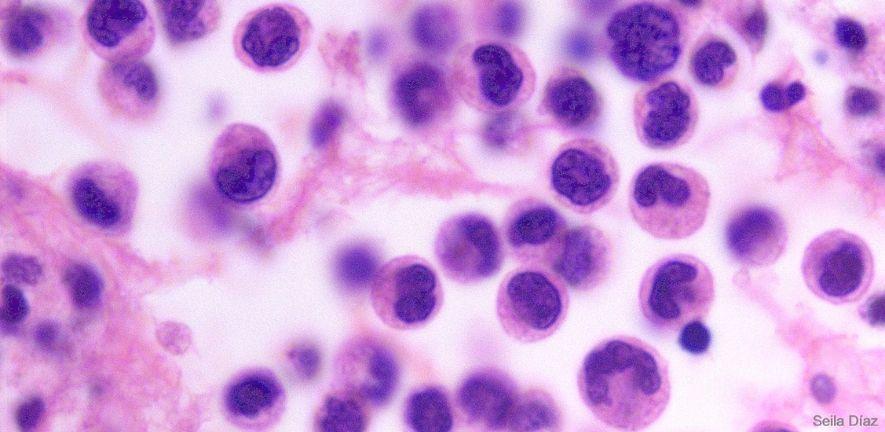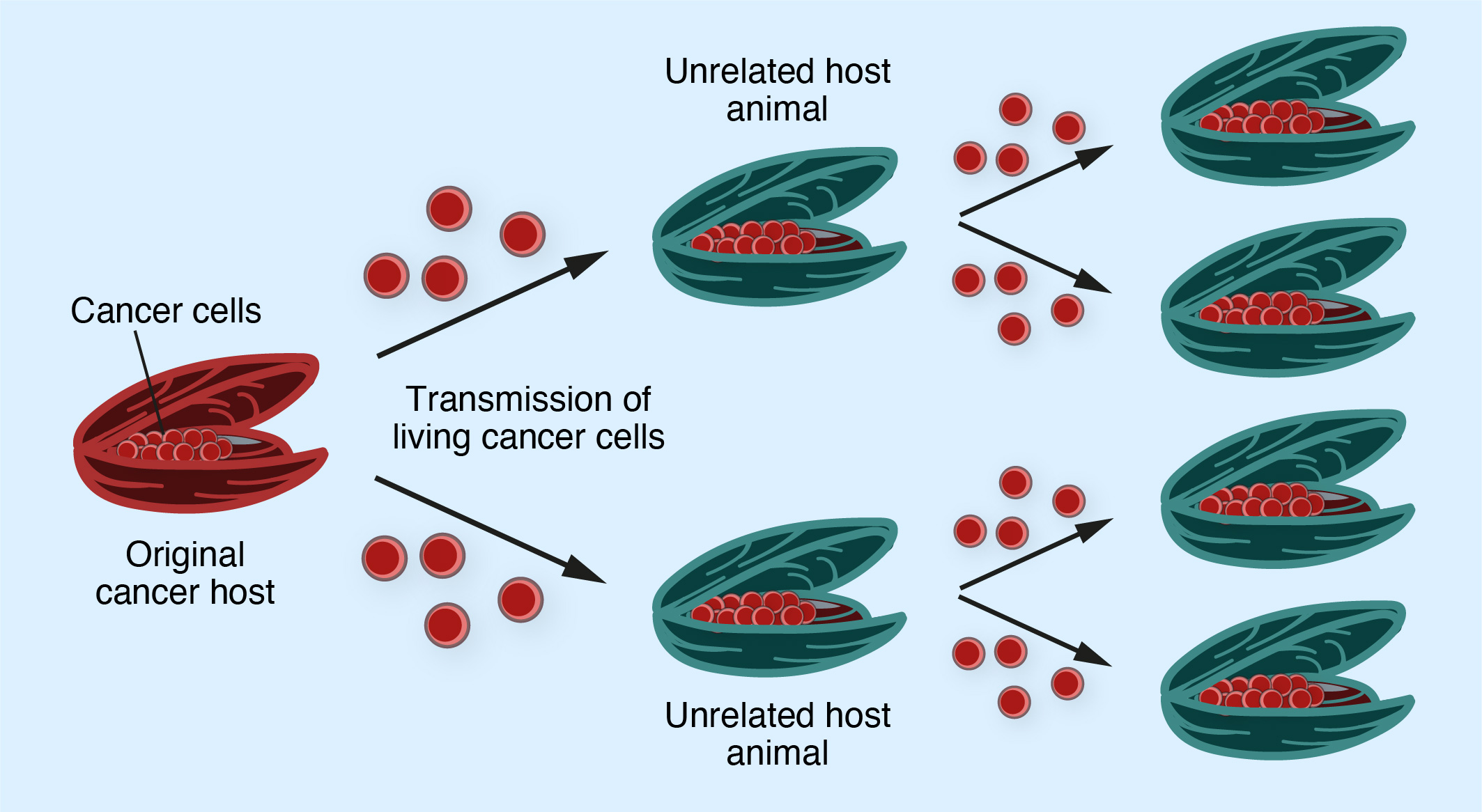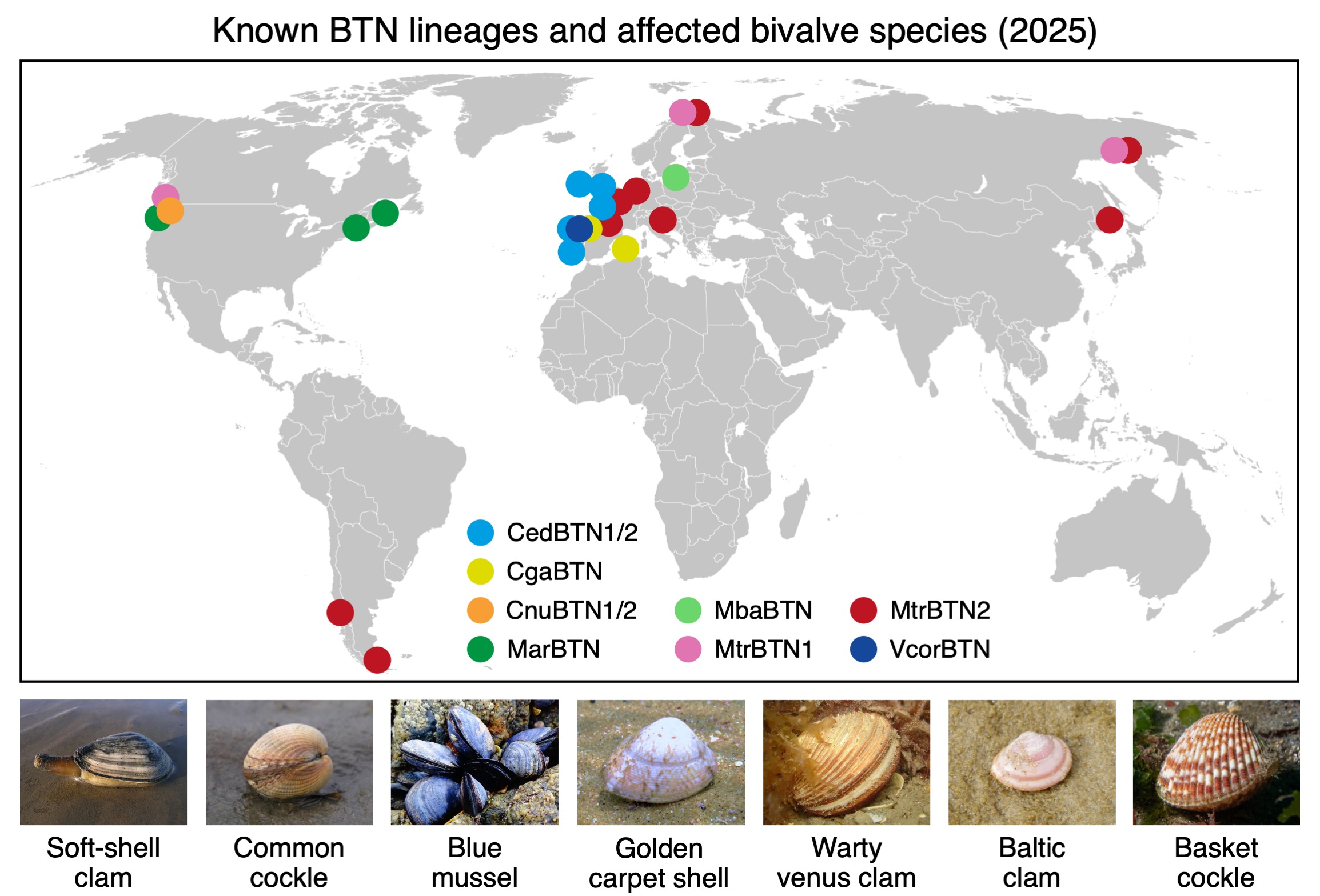
Genetics and evolution of marine transmissible cancers
Cancers are malignant outgrowths of abnormal cells, driven by a selfish evolutionary programme and supported by a permissive physiological microenvironment. Most cancers are confined within the body of the individual in which they arise, and hence are ultimately doomed to extinction. Transmissible cancers are the exception to this rule.
A transmissible cancer possesses the ability to infect new host individuals by physical transfer of living cancer cells, thus overcoming the death of its original host. By embracing an infectious lifestyle, some transmissible cancers have been able to survive for thousands of years, demonstrating that, under certain conditions, cancers can persist in nature as independent biological entities.
Research interests
Our group studies the processes by which transmissible cancers emerge, evolve and spread in marine environments. In particular, a family of leukaemia-like transmissible cancers known as bivalve transmissible neoplasias (BTNs) have recently been discovered in several species of marine bivalve molluscs, including clams, cockles and mussels. These infectious marine cancers can spread between genetically unrelated hosts through waterborne transfer of cancer cells, sometimes across entire oceans.
BTNs have emerged at least 10 independent times in a variety of bivalve species. Some of these cancers are exceptionally long-lived, having existed as continuously propagating cell lines for hundreds or thousands of years. BTNs thus offer an unparalleled platform for investigating how cancer genomes evolve over very long time-frames, and for understanding the evolutionary consequences of the transition from somatic cell to parasitic unicellular species.
Our research aims to improve understanding of the genetic causes, natural diversity, evolutionary histories, and ecological impacts of BTNs. Our work involves collecting and screening live bivalves with the help of collaborators in several countries; applying advanced technologies such as laser capture microdissection and single-cell sequencing to large numbers of tumour samples; and developing specialised computational methods for evolutionary analyses of cancer genomes.
Work with us!
If you are interested in joining or collaborating with the BTN Group, please send an informal enquiry to Adrian Baez-Ortega outlining your research interests and including a copy of your CV. We are a small, welcoming and international team, and we are keen to support applications for international fellowships and studentships from exceptional candidates at all career stages.
Key publications
Somatic evolution of marine transmissible leukemias in the common cockle, Cerastoderma edule
AL Bruzos, M Santamarina, …, A Baez-Ortega*, JMC Tubio* (2023)
PMID: 37783803, DOI: 10.1038/s43018-023-00641-9 (Free PDF)
Horizontal transfer of nuclear DNA in transmissible cancer
K Gori, A Baez-Ortega, A Strakova et al. (2025)
PMID: 40261943, DOI: 10.1073/pnas.2424634122
Recurrent horizontal transfer identifies mitochondrial positive selection in a transmissible cancer
A Strakova, TJ Nicholls*, A Baez-Ortega* et al. (2020)
PMID: 32546718, DOI: 10.1038/s41467-020-16765-w
Somatic evolution and global expansion of an ancient transmissible cancer lineage
A Baez-Ortega, K Gori*, A Strakova* et al. (2019)
PMID: 31371581, DOI: 10.1126/science.aau9923
*These authors contributed equally
Please contact us if you require a copy of any of our publications.


